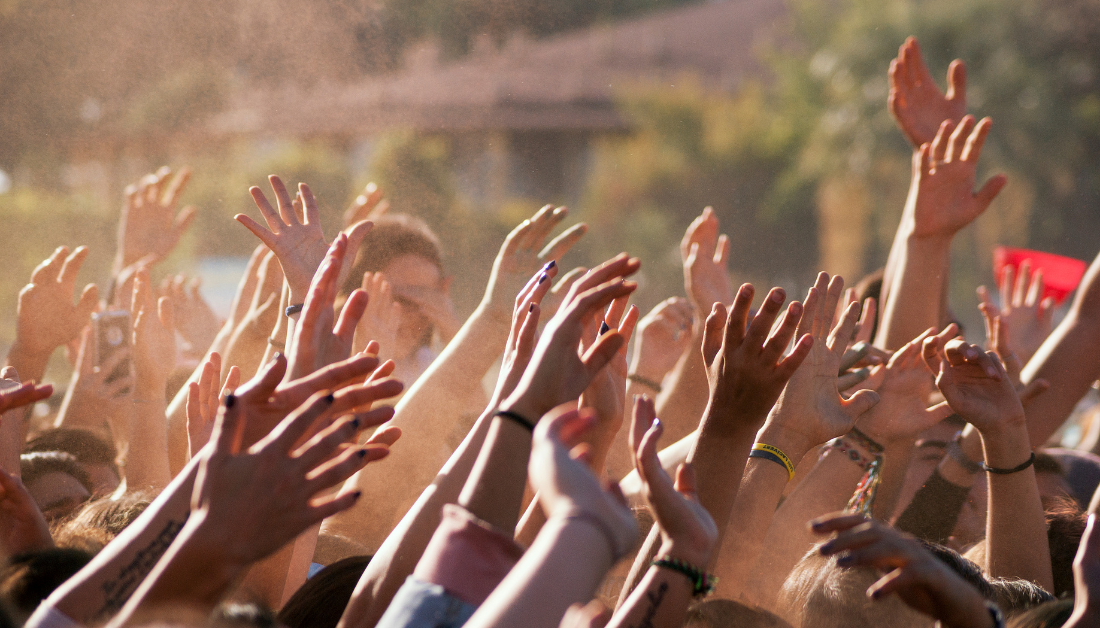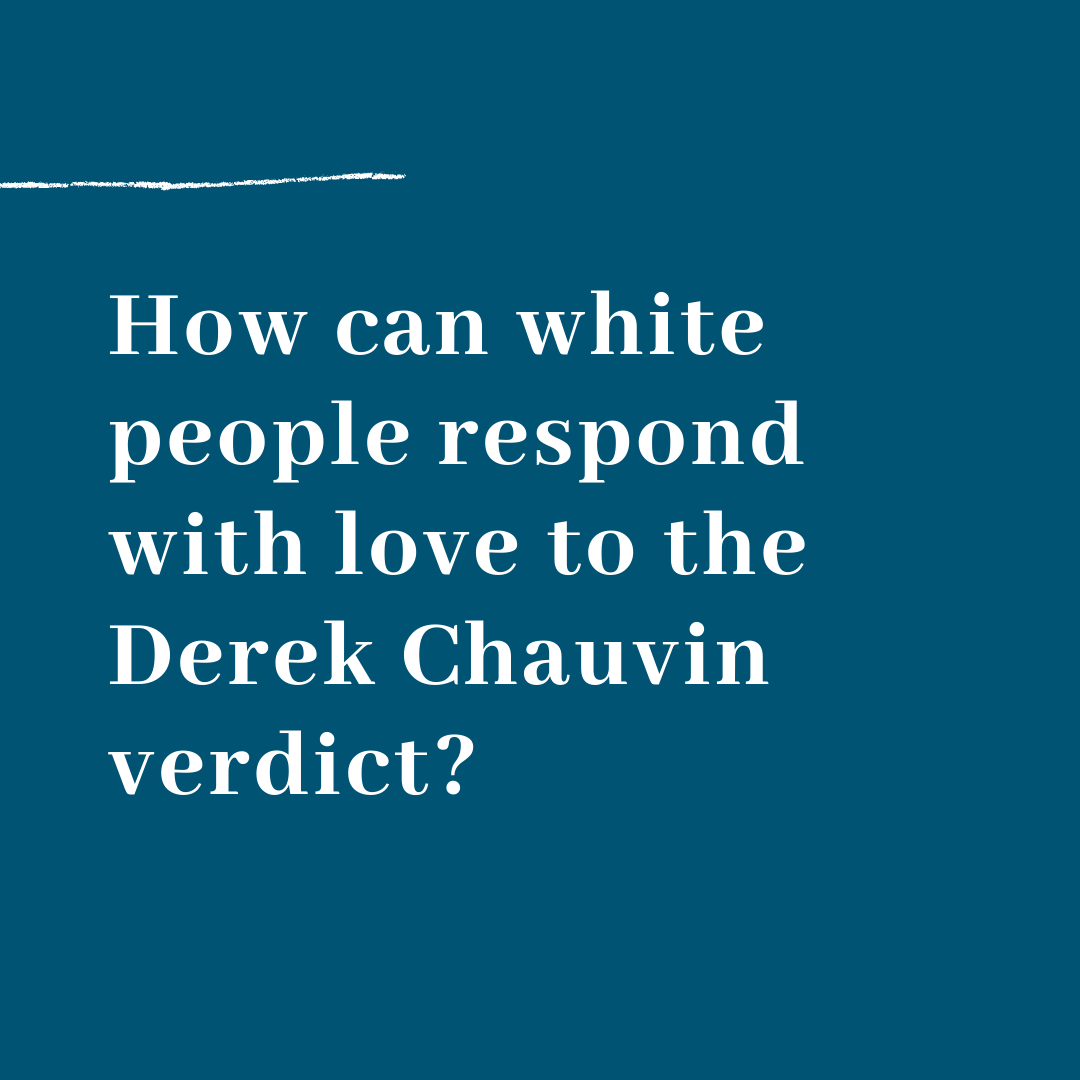
How can white people respond with love to the Derek Chauvin verdict and the recent police shootings of teenagers?
The guilty verdict for Chauvin was a relief to many across the nation and the globe. But it was not cause for celebration. George Floyd—father, brother, friend—lost his life under the knee of an official of the state for the infraction of using a counterfeit twenty-dollar bill. And even as that guilty verdict was spoken, Ma’Khia Bryant—a 16-year-old Black girl—was shot and killed by police.
I do not pretend to have done all the work or to have all the answers around racial justice, but as a white woman who has been seeking to understand and respond with hope and healing to our social divisions for many years now, I do want to offer 3 postures and 10 practices for white people right now:
Listen.
Lament.
Love.
Respond With Love: Listen
Listen: For those of us who have had years of positive or neutral encounters with police officers, for those of us who have never needed to tell our children how to try to protect their lives at a traffic stop, for those of us who have grown up with the assumption that the police exist in order to keep us safe—our experiences are not the same as the experiences of our BIPOC (Black, Indigenous, People of Color) friends and neighbors and fellow Americans. We need to listen to their stories and learn that those stories are not isolated anecdotes.
PRACTICES TO LISTEN
1. Start following leaders of color on social media platforms. (Here are a few to get you started on Instagram: Osheta Moore, Jemar Tisby, Black Liturgies, Carlos Whittaker, Lisa Sharon Harper, Vivian Mabuni, Ray Chang, TheKingCenter, Dominique Gilliard)
2. Examine the data about the disproportionate use of force by police with Black and brown people in comparison to white people.
3. Listen to Ezra Klein and Ta-Nehisi Coates talk about a new paradigm for policing.
Respond With Love: Lament
Lament: There is a time and a place for political action, financial support, intercessory prayer and practical help. Let’s be clear: that time and place is here and now. But even as we move towards these acts of love, we begin with lament. We look to the example of the Psalmists and the prophets as we cry out to God. We name the injustices and the centuries of harm and the ongoing sense of helplessness and despair in the face of violence and brutality.
Especially for those of us who have been on the margins of these battles in the past and for those of us who are new to the conversation about racial justice, we do our part to carry the weight of the burdens of despair and anger so that our Black and brown brothers and sisters do not carry it alone. We carry the prayers of rage and sorrow with them. We even carry those prayers for them when they can no longer cry out to God.
PRACTICES TO LAMENT
4. Commit to a weekly time of prayer with a friend in which you lift up the cries of people who have been historically marginalized, overlooked, and dehumanized.
5. Listen to Songs of Lament by Porter’s Gate and enter into the tradition of bringing these cries before God.
Respond With Love: Love
Love. Rev. Dr. Martin Luther King Jr. once said, “Power without love is reckless and abusive, and love without power is sentimental and anemic. Power at its best is love implementing the demands of justice, and justice at its best is power correcting everything that stands against love.”
PRACTICES TO LOVE
We can use the power we have:
6. to speak up, with love, in a social setting when friends and family members question the validity, and the value, of the BIPOC experience in America.
7. to give our time to organizations and endeavors that lift up the downtrodden.
8. to give our money to Black-owned businesses and non-profits.
9. to teach our children a different way of understanding the beauty and the shame of American history.
10. to advocate for institutional change in our places of worship, schools, towns, and prison systems.
How can white people respond to the Derek Chauvin verdict? We are invited right now to listen, to learn, to lament, and to love.
For more practices and ways to respond with our head, heart, and hands, check out these resources.
To learn more with Amy Julia:
- AJB Recommends: Media About Race and Privilege
- Season 4 of Love Is Stronger Than Fear: Head, Heart, Hands
- Ways to Participate in Racial Healing
- Learn More About Privilege
- Action Guides and Bible Studies
If you haven’t already, please subscribe to receive regular updates and news. You can also follow me on Facebook, Instagram, Twitter, Pinterest, YouTube, and Goodreads, and you can subscribe to my Love Is Stronger Than Fear podcast on your favorite podcast platforms.



